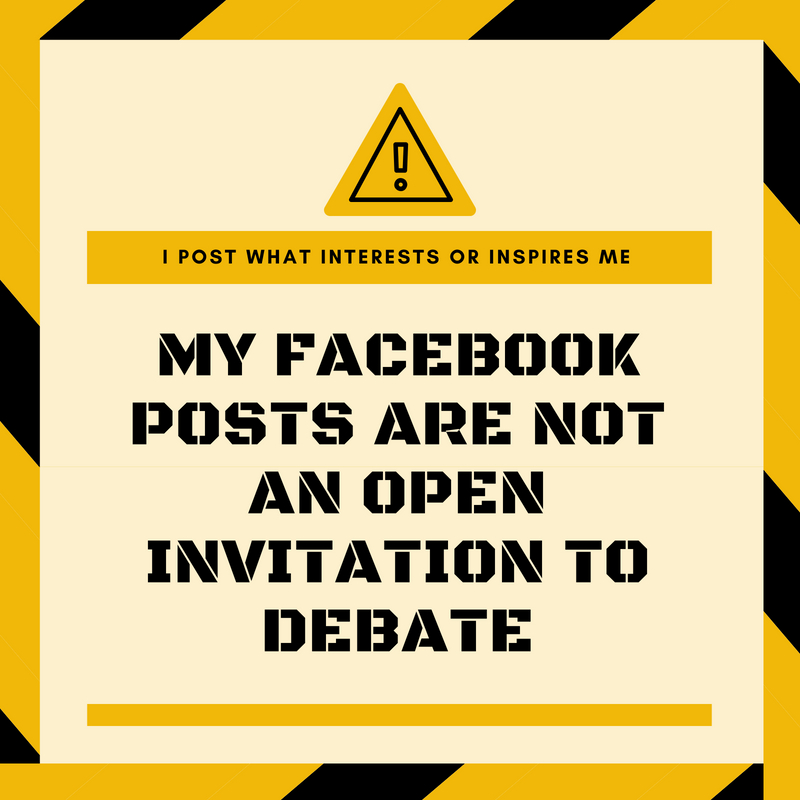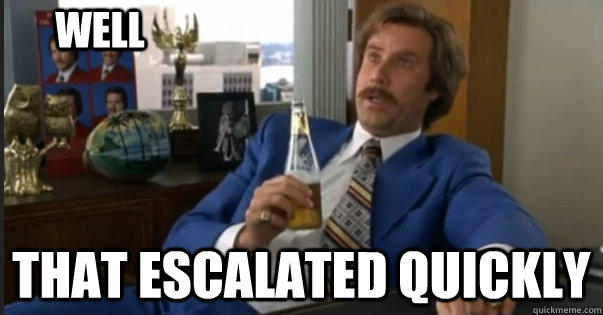 |
|
BLOG
Two Jews, Three Opinions: Social Media as Bully Pulpit
The quip, “Two Jews, Three Opinions” is such a truism that I would guess there’s barely an English-speaking Jew alive who hasn’t heard it. We Jews are an opinionated people. And social media has given us a wide open outlet to opine.
People in their teens and 20s today have never known a world without social media. A generation ago, there were op-eds in newspapers. There were books, conferences and television talk shows. In the pre-social media days, some people, like clergy, politicians and professors, had regular access to audiences. These formats all had one thing in common. Presenting one’s argument took preparation.
Then along came social media – talkbacks, Facebook, Twitter and others – and now anyone with an internet connection can respond instantaneously.
Who among Facebook users doesn’t have a story about someone who unfriended them, or someone they had to block, because of strong differences of opinion, generally stridently expressed? Which social media user has not been enraged by the opinions of another?
We have never had so much information about what our friends, family, neighbors, colleagues and strangers think. That’s not necessarily a good thing.
After dealing with yet another person’s [NOTE: subjective opinion ahead] arrogant and dismissive comment related to an issue about which I care a great deal, I recently created and shared a meme that says, “I post what interests or inspires me. My Facebook posts are not an open invitation to debate.”
We have never had so much information about what our friends, family, neighbors, colleagues and strangers think. That’s not necessarily a good thing.
After dealing with yet another person’s [NOTE: subjective opinion ahead] arrogant and dismissive comment related to an issue about which I care a great deal, I recently created and shared a meme that says, “I post what interests or inspires me. My Facebook posts are not an open invitation to debate.”

Incredibly, over 100 people reacted to the meme. Twelve people shared it. And in the couple of dozen comments, ironically, people actually debated my statement.
Their argument, in a nutshell, was that the very nature of social media invites people to express… well, pretty much whatever the heck they want to express.
In other words, their argument is that there is an inherent social contract in social media. And the terms of that contract are simple - “Anyone is invited to say anything they want, to whomever they want, in the social media space.”
I recently deleted a popular post because the reactions to it were so caustic, so venomous, that it made me cringe. I don't think and write about issues I care about to give other people a platform for cruelty. Disagreement is one thing. Malice is another.
I recently deleted a popular post because the reactions to it were so caustic, so venomous, that it made me cringe. I don't think and write about issues I care about to give other people a platform for cruelty. Disagreement is one thing. Malice is another.
I was curious what Jewish tradition had to say on the topic. I found a few relevant teachings from Pirkei Avot, a rabbinic text that literally means Chapters of the Fathers, but is more commonly translated as Ethics of the Fathers. Pirkei Avot is arguably the most well-known book from the rabbinic tradition. Its six chapters are primarily made up of aphorisms attributed to rabbis who lived approximately 2000 years ago.
In Pirkei Avot 2:16, Rabbi Eliezer said, “Let the honor of your fellow be as precious to you as your own.”
Thinking about this teaching helps me imagine a social media world where people are respectful and where disagreements don’t automatically descend into name-calling. The incivility happens so often, there’s even a meme in response.

Rabbi Eliezer also said, “Do not be easily provoked to anger.” This is another useful teaching to apply to social media. When people post things you don’t agree with, you don’t always have to retaliate with a caustic barb of your own. In fact, it’s a lot healthier to guard yourself against being provoked to anger in the first place.
Another relevant teaching from Pirkei Avot 3:17 is, “Rabbi Akiva said… The fence protecting wisdom is silence.” One of the tools I’m working on is to teach myself to say, “That person is misguided.” And then MOVE ON.
Another relevant teaching from Pirkei Avot 3:17 is, “Rabbi Akiva said… The fence protecting wisdom is silence.” One of the tools I’m working on is to teach myself to say, “That person is misguided.” And then MOVE ON.
Without commenting.
Social media, and the internet as a whole, has been compared spiritually to the Eitz Hadas Tov VeRa - the Tree of the Knowledge of Good and Evil in the Garden of Eden. It contains both good and evil.
There’s a lot of good in social media. And I won’t stop posting things that interest or inspire me. At the same time, I think that we have opened the barn doors far too widely. I’d like to see a social media environment where all the good and useful information isn’t automatically coupled with divisiveness.
And I absolutely think that social media would be vastly improved if users would pay a bit more attention to the teachings of Pirekei Avot and stop using the ability to comment as their own personal bully pulpit.
Social media, and the internet as a whole, has been compared spiritually to the Eitz Hadas Tov VeRa - the Tree of the Knowledge of Good and Evil in the Garden of Eden. It contains both good and evil.
There’s a lot of good in social media. And I won’t stop posting things that interest or inspire me. At the same time, I think that we have opened the barn doors far too widely. I’d like to see a social media environment where all the good and useful information isn’t automatically coupled with divisiveness.
And I absolutely think that social media would be vastly improved if users would pay a bit more attention to the teachings of Pirekei Avot and stop using the ability to comment as their own personal bully pulpit.
---
Do we have an obligation to correct misleading media bias when it comes to news coverage of Israel? See answers from Orthodox, Conservative and Reform rabbis here.
If you have a question about Jewish values that you would like to ask rabbis from multiple denominations, click here to enter your question. We will ask rabbis on our panel for answers and post them. You can also search our repository of over 700 questions and answers about Jewish values.
For more great Jewish content, please subscribe in the right-hand column. Once you confirm your subscription, you'll get an email whenever new content is published to the Jewish Values Online blog.
For more great Jewish content, please subscribe in the right-hand column. Once you confirm your subscription, you'll get an email whenever new content is published to the Jewish Values Online blog.
|
|
|
Jewish Values Online
Home | Search For Answers | About | Origins | Blog Archive Copyright 2020 all rights reserved. Jewish Values Online N O T I C E
THE VIEWS EXPRESSED IN ANSWERS PROVIDED HEREIN ARE THOSE OF THE INDIVIDUAL JVO PANEL MEMBERS, AND DO NOT
NECESSARILY REFLECT OR REPRESENT THE VIEWS OF THE ORTHODOX, CONSERVATIVE OR REFORM MOVEMENTS, RESPECTIVELY. |
